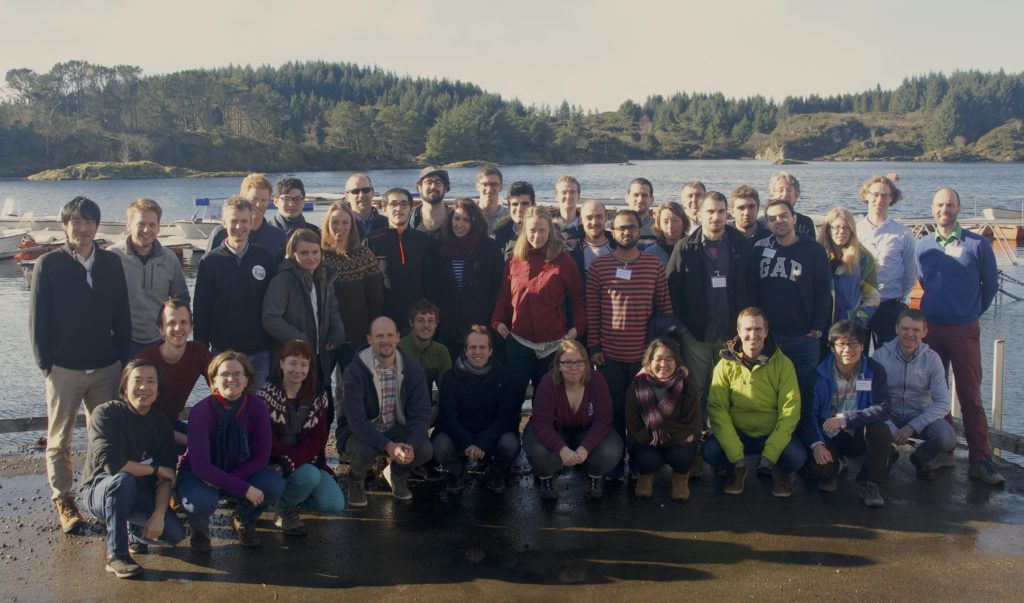
All attendees at the winter school. Photo: Joachim Reuder.
On 3-8 March, 29 participants and 10 expert lecturers attended a winter school at Kvalheim Fritid on Radøy near Bergen. The attendees came from several different countries and continents and lived in shared cabins and houses at the venue, providing a nice atmosphere for international networking. The school focused on the influence of diabatic and air-sea interaction processes on cyclone development, storm tracks, and cold air outbreaks and featured recent field campaigns such as NAWDEX (North Atlantic Waveguide and Downstream Impact Experiment) and IGP (Iceland Greenland seas Project).
Lecturers were present from ETH Zurich, University of Reading, ECMWF, Monash University, University of East Anglia, NOAA, KNMI, and, of course, the Geophysical Institute, University of Bergen. They presented an overview of dynamical paradigms and modeling frameworks as well as forecasting capabilities for cyclone and storm track interactions with diabatic processes and air-sea interactions. The lecture topics ranged from energetics of storms, moist baroclinic instability, moisture sources, diabatic PV tracers, adjoint sensitivity, reliability analysis, Lagrangian PV tendencies, frontal dynamics, air-sea interactions, to field campaign planning and execution.
In addition to the lectures, participants worked together in small groups on case studies from NAWDEX and IGP and presented their findings on the last day. The diversity of the research backgrounds within each group provided a good basis for discussion of the case studies. On Tuesday and Wednesday evening, participants presented posters on their own work, which led to fruitful discussions and valuable feedback from people in relevant disciplines.
During the week, several social activities were arranged. The school was kicked off with an icebreaker on Sunday evening, and a party including amateur karaoke marked the beginning of the end on the last evening. On Tuesday, the lunch break was extended with an excursion along the coastline visiting the end of Marøy and an old military facility from World War II. In the evenings participants relaxed in the Jacuzzis that the cabins were equipped with.
The winter school was and overall success and provided a good overview of, and detailed insight into, diabatic processes on atmospheric development. Attendees enjoyed fruitful discussions with colleagues while developing their international research network. We can highly recommend Kvalheim Fritid as a venue for similar workshops or schools in the future!
Text: Kristine Flacké Haualand and Thomas Spengler

Participants discussing their work in one of the poster sessions. Photo: Thomas Spengler.

Attendees ready for more lectures. Photo: Andrea Marcheggiani
